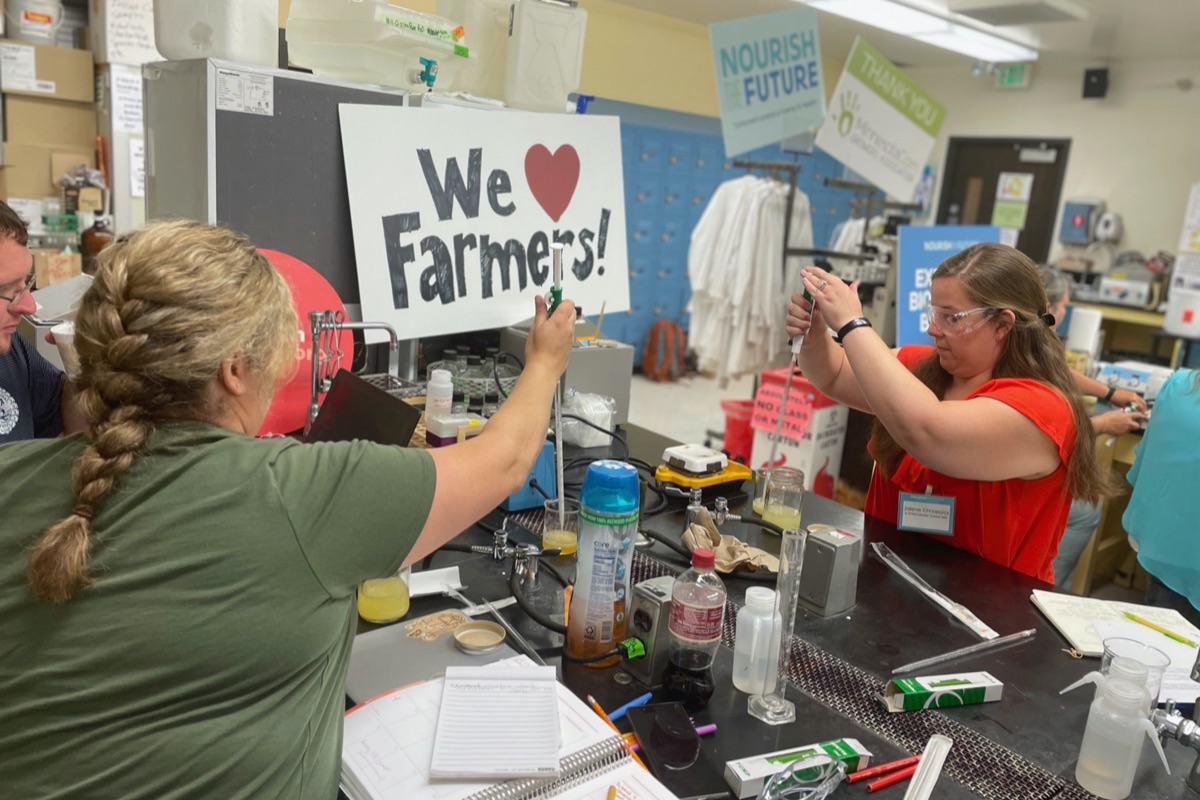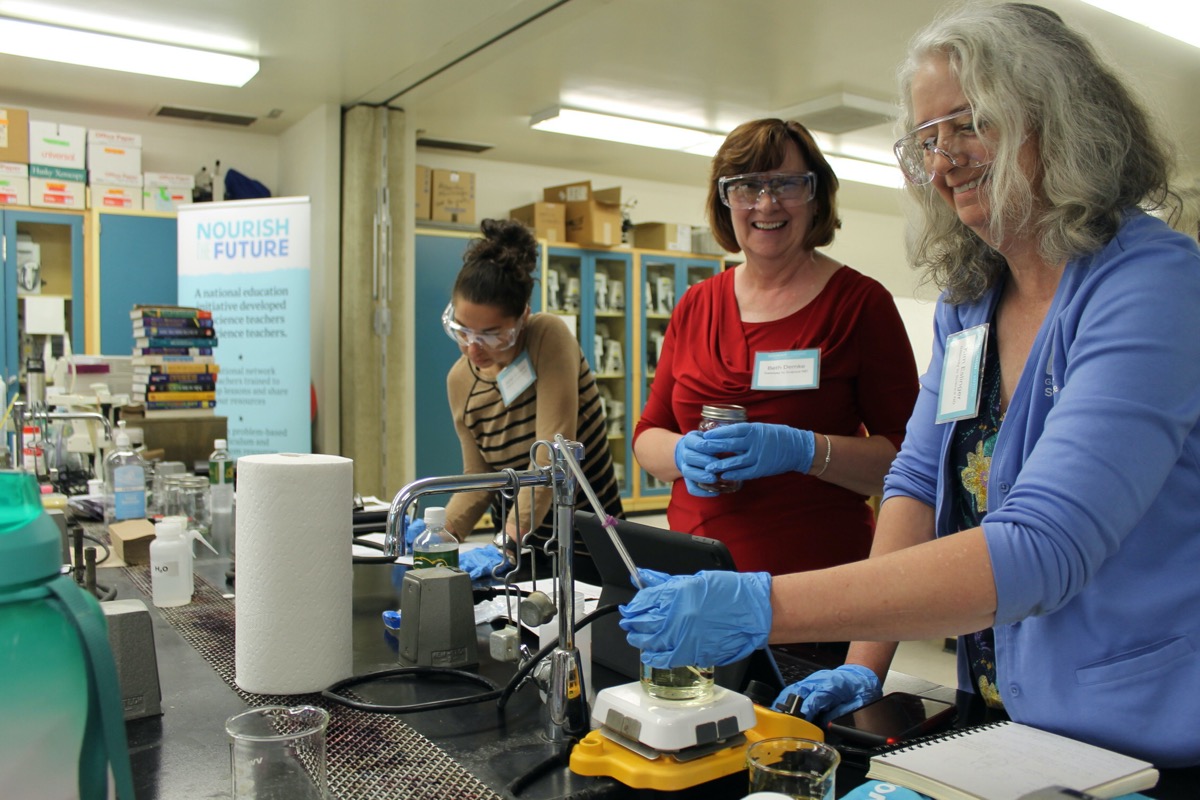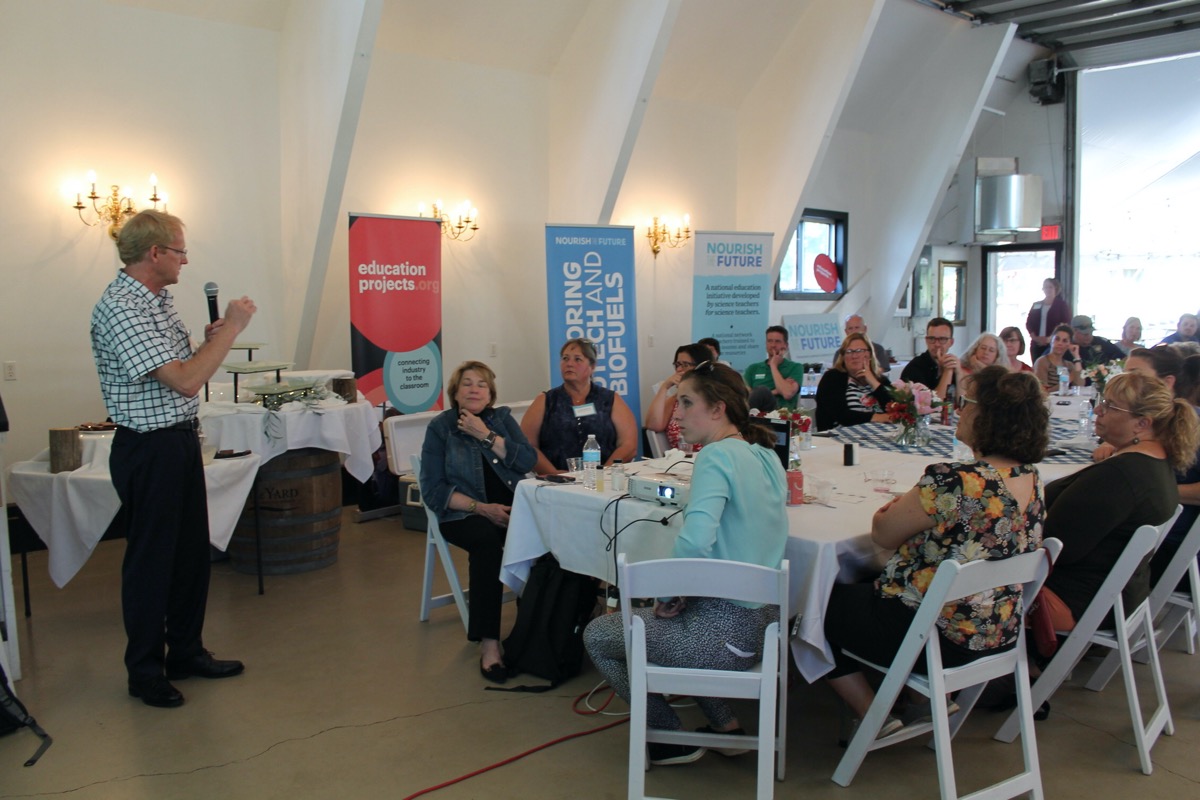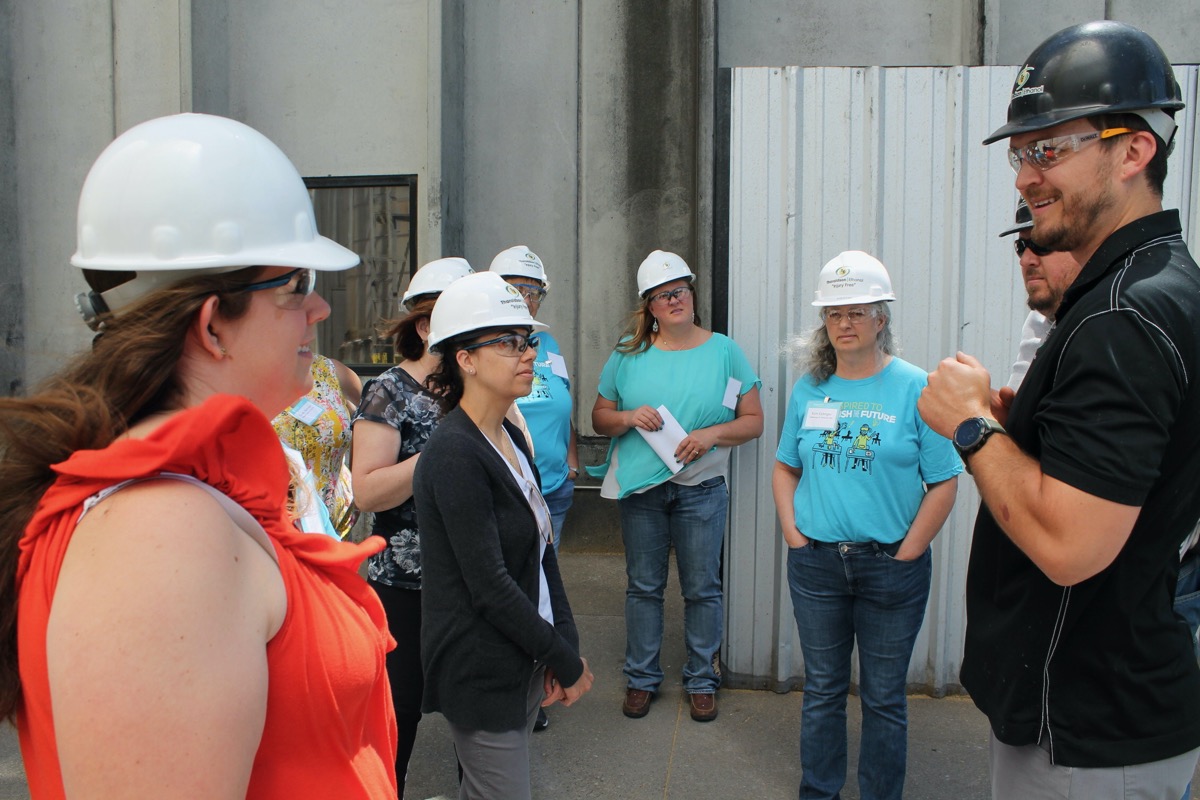Educationprojects.org facilitates a variety of events for our partners.
Teachers from several states recently participated in a great workshop: Exploring Biotech and Biofuels, a Nourish the Future Ag Biotech workshop presented by educationprojects.org. This workshop was held at North Dakota State University and sponsored by the North Dakota Soybean Council, with contributions from the Minnesota Corn Growers Association.
Greg Endres from NDSU Extension shared about modern agriculture, the decisions farmers must make, and how scientific advances are impacting farming. He explained the differences between conventional and commodity cropping and how these affect yield.


The workshop focused on biofuels, genetics, and bioinformatics. Presenters Rachel Sanders, Zack Bateson, and Jane Hunt led the group through a lab activity making biodiesel from soy oil and renewable diesel from corn oil, then tested the performance of the oil using putt-putt boats.
Next, the teachers created their own protocol and extracted DNA from corn and soy, acted out a human model of a DNA strand, and learned how a GMO is created.
Zack Bateson from National Agricultural Genotyping Center talked about the relationships between plants by making a phylogenetic tree based on the gene for rubisco. He demonstrated how they could search for evidence of specific plants or animals using bioinformatics, helping biology teachers learn how to use the BLAST website in ways that connect with their standards. Bateson gave a virtual tour of NAGC and talked about the research being done there.


A dinner held at The Yard in Minnesota provided an evening of interaction with industry experts. Two North Dakota State University bioproducts researchers shared about their field. Dean Webster helped teachers make connections between the subjects they teach and bioresearch products. Jim Bahr talked about the process of developing a bioproduct and taking it to market, using the example of a dust suppressant product he helped create.
A field trip to Tharaldson Ethanol gave teachers a better understanding of ethanol production. The group saw the lab, then got a look at the operations. Lab manager Kip Stevens led the tour, talking about the production process and the amount of ethanol produced every day, as well as the co-products, dried distillers grain and corn oil.